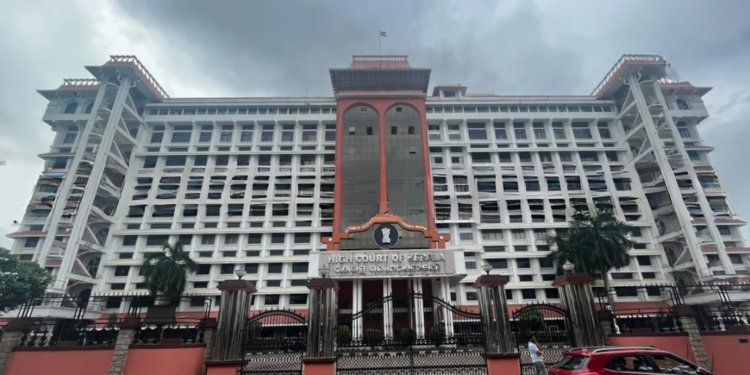Indian Man Who Briefly Worked in Pakistan Cannot Be Termed an “Enemy,” Says Kerala High Court
An Indian man cannot be labeled an “enemy” under the Defence of India Act or its rules simply because he briefly worked in Pakistan, the Kerala High Court recently observed [P Ummer Koya v State of Kerala & ors].
The Court made this observation while quashing proceedings initiated under the Enemy Property Act, 1968, against a piece of land that had belonged to the now-deceased man and was later acquired by his son.
The 74-year-old son (petitioner), a retired police officer, was not allowed to pay basic tax on this property due to instructions not to alienate the land because of proceedings initiated under the Enemy Property Act.
The petitioner was informed that his father, who passed away in 1995, had been regarded as an “enemy” since he went to Pakistan in search of a job in 1953.
Aggrieved, the petitioner sought relief from the High Court.
In a June 24 ruling, Justice Viju Abraham observed that moving to Pakistan for a job does not make one an “enemy” under the Defence of India Rules.
“Simply because the petitioner’s father went to Pakistan in search of a job and worked there for a short period does not make him an ‘enemy’ under Rules 130 or 138 of the Defence of India Rules, 1971. These rules were created for a completely different purpose, and applying them in this context is irrelevant and out of context,” the Court said.
The Court was addressing a petition filed by P Ummer Koya after he learned that the Custodian of Enemy Property for India (CEPI) had initiated proceedings against his father under the Enemy Property Act, 1968, based on a 1971 notification issued by the Union Ministry of Foreign Trade.
This notification stated that all property defined as enemy property under Rule 138 of the Defence of India Rules, 1971, and held by an enemy, as defined under Rule 130, would be vested in the CEPI.
Rule 130 deals with the ‘Control of Trading with Enemy,’ and Rule 138 pertains to the ‘Control of Enemy Firm.’ These rules were designed to prohibit trade with an enemy or enemy firms.
Koya contested the decision to declare his father’s property as “enemy property” under these provisions. He informed the Court that his family has been residing in Malappuram, Kerala, for generations. His father died in 1995 at the age of 93 and was buried in India.
He submitted that his father had briefly worked in Karachi, Pakistan, as a helper in a hotel around 1953, which led police authorities to brand him as a citizen of Pakistan.
However, his father approached the Central government on this matter, and in 1990, his Indian citizenship was expressly confirmed. Authorities concluded that Koya’s father never voluntarily acquired Pakistani citizenship and, therefore, remained a citizen of India.
The Court found merit in these arguments and noted that the 1971 notification was intended to prevent trading with an “enemy” and “enemy firms” to avoid external aggression against India.
The Court found no evidence that the petitioner’s father was engaged in trading with the enemy or under the control of an enemy firm during his stay in Pakistan.
“The petitioner’s father does not fall under the definition of ‘enemy,’ nor can the property held by him be considered ‘enemy property’ by any stretch of the imagination. The 6th respondent (CEPI) has no case that the petitioner’s father was trading with an ‘enemy’ or part of any ‘enemy firm’ doing business with India,” the Court found.
The Court, therefore, quashed the proceedings initiated by CEPI and instructed the village officer to accept the basic tax payment from the petitioner.
Advocate MA Asif represented the petitioner.
Central government standing counsel KS Prenjith Kumar represented the Union of India and the CEPI.
Government Pleader Deepa V appeared for Kerala.

















